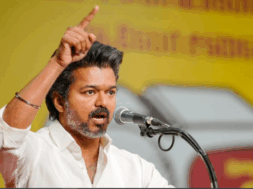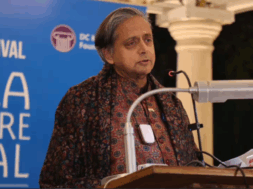
Roving Periscope: After Taiwan, the US tightens the Tibetan screw on China
Virendra Pandit
New Delhi: In the 1950s and 1960s, America geopolitically ‘encircled’ the then-Communist bastion of the Soviet Union by stitching together multiple security alliances like NATO, SEATO, and CENTO. Six decades later, it is following a similar policy against China the dyed-in-wool “communist” citadel.
While the US-led ‘anti-China’ alliances, in trade, business, and security, are coming up from the Philippines to India to the Middle East, it is now focusing mainly on Taiwan and Tibet, the twin jugular veins and the biggest weaknesses of the Dragon.
And the same American Democratic leader, Nancy Pelosi, is leading this drive from the front. In August 2022, as the then US Congress Speaker, she visited Taiwan to reassure it of continued and growing American support against its ‘reunification’ with mainland China.
Now, she is in India to reassure the exiled Tibetans that Washington has brought their issue to the front burner.
“Won’t allow China to influence the choice of the Dalai Lama’s successors,” a US lawmakers delegation said after meeting the Tibetan spiritual leader in Dharamsala, Himachal Pradesh, where the Nobel Peace Prize winner (1989) has been living since the 1950s.
Pelosi was among the seven members of the US Congressional delegation who met the spiritual leader on Wednesday. The delegation was led by US House Foreign Affairs Committee Chairman Michael McCaul and comprised Mariannette Miller, Gregory Meeks, Nicole Malliotakis, Jim McGovern, and Ami Bera, besides Pelosi.
“…His Holiness Dalai Lama, with his message of knowledge, tradition, compassion, purity of soul, and love, will live a long time and his legacy will live forever. But you, the President of China, you’ll be gone and nobody will give you credit for anything. Dalai Lama would not approve of my saying that when I criticize the Chinese government, he says, let’s pray for Nancy to rid her of her negative attitudes,” Pelosi said.
“I hope he will indulge me today to say that change is on the way. As our colleagues have said hope brings some faith and the faith of the Tibetan people in the goodness of others is what is going to make all the difference…,” she asserted.
Speaking about the approval by the US Congress for the fresh bipartition legislation, titled “Promoting a Resolution to the Tibet-China Dispute Act’,” or the “Resolve Tibet Act,” Pelosi said it sent a message to China that Washington is clear in its thinking on the issue of Tibet which China annexed in 1950-51.
“This Bill says to the Chinese government: things have changed now, get ready for that,” Pelosi was quoted as saying by the media.
McCaul, at a public reception after the meeting, said, “It is still my hope that one day the Dalai Lama and his people will return to Tibet in peace.” On Beijing’s interference in choosing the successor of the Dalai Lama, which has been a widely debated issue, McCaul said, “We will not let that happen.”
While Beijing claims the right to approve the Dalai Lama’s successor – as a legacy inherited from China’s emperors – the Tibetan tradition holds that the Dalai Lama is reincarnated after his death, and the current leader has said his successor may be found in India.
An upset China, which considers the Dalai Lama a dangerous “separatist,” said it was seriously concerned about the visit of the US lawmakers to Dharamsala and the legislation. It also urged the lawmakers not to contact the “Dalai clique.”
In Beijing, Chinese Foreign Ministry spokesperson Lin Jian urged President Joe Biden not to sign the bipartisan Tibet Policy Bill adopted by both the US Senate and the House of Representatives. According to media reports from Washington, the Bill, which seeks to counter China’s narrative about its control over Tibet and promote dialogue between the Chinese government and the Dalai Lama, awaits Biden’s signature to make it into law.
Dharamsala has been the seat of power for Tibet’s government in exile since the spiritual leader stepped into India six decades ago.













